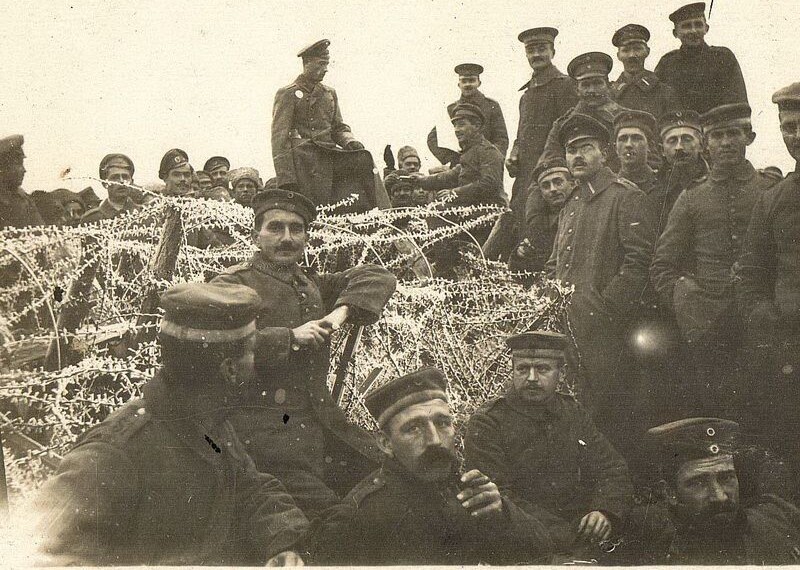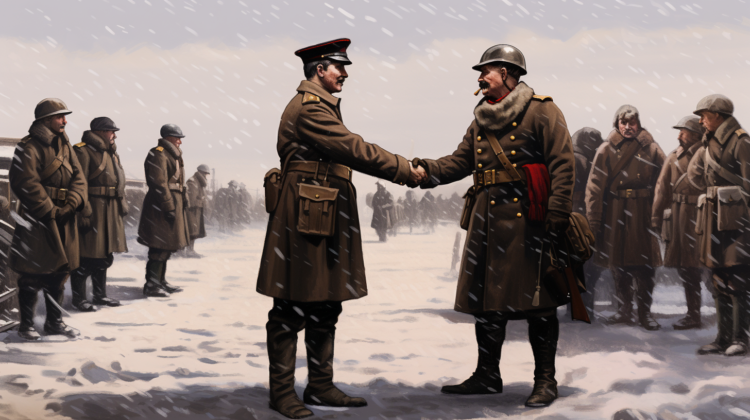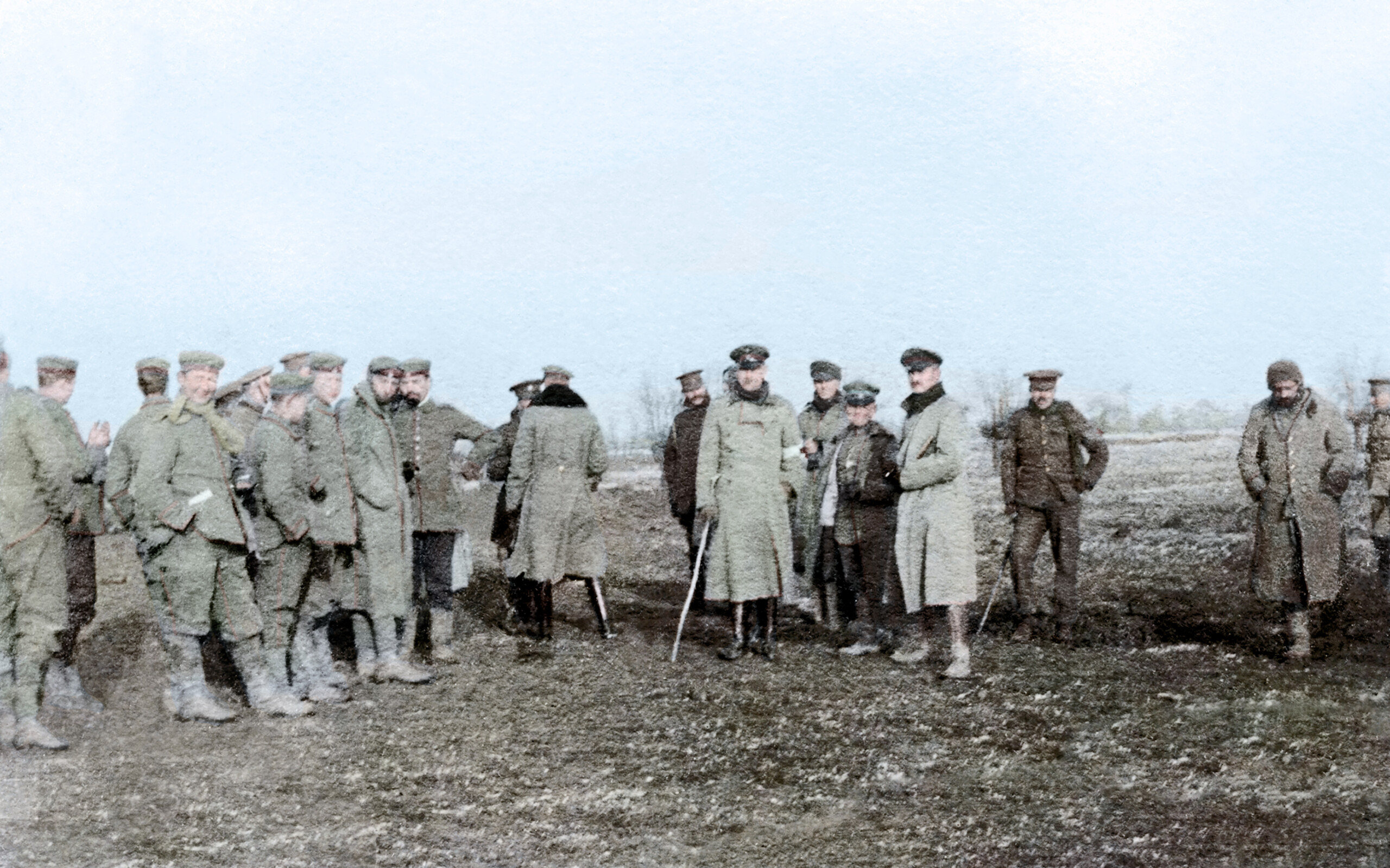One famous game near Armentières involved 133rd Royal Saxon Regiment soldiers playing against a mixed team of British infantrymen. The score? That’s a matter of legend, but the camaraderie and sportsmanship are well-documented.
A Momentary Peace
Amid the thunderous echoes of artillery and the weary eyes of soldiers, a glimmer of humanity emerged that Christmas of 1914. It was a flicker of hope that united men across battle lines and allowed them, if only briefly, to see themselves in one another.
But this unique ceasefire, the Christmas Truce of 1914, was not without its complexities and contradictions.
The Impact on Leadership
Not everyone was pleased with the Christmas Truce of 1914. Many higher-ranking officials were worried about fraternization’s impact on the troops’ fighting spirit.
General Sir Horace Smith-Dorrien strongly discouraged the truces, fearing it would undermine discipline. Despite these objections, the calm persisted in some areas, demonstrating the profound human connection between supposed enemies.
A Return to Reality
Unfortunately, the Christmas Truce of 1914 was a fleeting respite from the horrors of war. By New Year’s Day, most unofficial truces had ended, and the grim reality of conflict resumed.
However, the memory of those few days lived on in the letters and diaries of the soldiers who experienced it. The truce has since become a symbol of humanity’s capacity for compassion, even in the darkest circumstances.
Echoes in Art and Culture
The Christmas Truce of 1914 captured the imaginations of poets, musicians, filmmakers, and authors alike.
Inspiring Creations
From the haunting words of poet Carol Ann Duffy in her poem “The Christmas Truce” to the melodic lines of John McCutcheon’s folk song “Christmas in the Trenches,” artists have been captivated by this extraordinary event.
Even on the silver screen, films like “Joyeux Noël” have sought to encapsulate the raw emotion and humanity that defined those few days.
A Lesson for Today
But why does the Christmas Truce of 1914 continue to inspire? Perhaps it’s a stark reminder that we’re all human underneath the uniforms, ideologies, and orders.
It’s a lesson about empathy and connection that feels just as urgent today.
A Legacy of Hope

The Christmas Truce of 1914 stands as a luminous example of human potential. It’s a testament to the power of empathy, understanding, and shared humanity, even in the bleakest moments.
In a world where division often makes headlines, it serves as a beacon of hope, a mirror reflecting what we could be when we choose compassion over conflict. The Christmas Truce of 1914 resonates as a historical curiosity and a living, breathing lesson in human connection.











COMMENTS